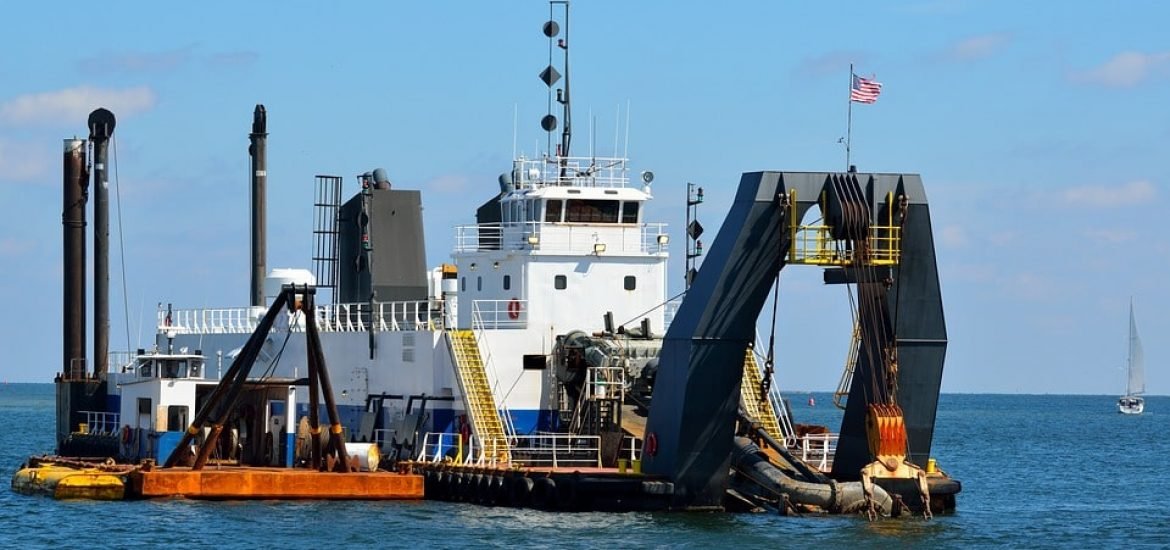
There’s a long-standing debate about how deep-sea mining can destroy the seafloor and stir up fine sediments creating plumes of suspended particles, but there’s another critical aspect that is often overlooked: underwater noise.
Wildlife protection NGO OceanCare has campaigned against noise pollution for almost two decades. “Underwater noise threatens marine life,” says Cyrill Martin, Ocean Policy Expert at the marine wildlife protection NGO OceanCare. “High levels of noise would be emitted constantly over decades if deep-sea mining is permitted without further research and regulation,” he adds.
Under the right conditions, low frequencies can be heard thousands of kilometers away in the ocean. At about 800-1000 meters deep in temperate water, the speed of sound is at its minimum, but it can travel over long distances. This is known as the Sound Fixing and Ranging (SOFAR) Channel. For example, sounds generated in the Southern Indian Ocean can be heard in both the North Atlantic and North Pacific.
But how noisy is deep-sea mining? While it’s virtually impossible to assess the true impact of deep-sea mining, one comparison shows just how loud acoustic emissions from deep-sea diving can be: it is estimated that all the equipment used —sonars, multiple vessels, dredges, and drills— can emit noise that is several times louder than a rocket launch.
It’s not surprising that all this noise is detrimental to aquatic life. Many marine species use sound to communicate with others, to hunt, to spot dangers, and to find a mate. And it’s not just whales and dolphins, which are known for their sophisticated songs. Many marine species rely on sound to survive. Sadly, many studies have shown that noise can disrupt navigation and foraging as well as cause health problems, such as hearing loss, internal injuries, and impaired egg development and malformations.
“Around 150 marine species have shown to be impacted by noise, so there is no longer any doubt that underwater noise is a harmful and a serious pollutant”, says Lindy Weilgart, a marine biologist at Dalhousie University, Canada, and OceanCare consultant. “Humans are already emitting noise almost constantly through shipping, oil and gas exploration, military sonars, and other activities. We see the consequences in whales, dolphins, and other marine animals. Adding another source of constant and loud noise without further research about the impacts and without significant efforts to reduce the noise would be utterly irresponsible.”
The problem is that, while we know that noise can affect marine life, this is still a relatively new field of research. As commercial deep-sea mining hasn’t started yet, researchers haven’t really studied its impact on a large scale. However, if nothing else, the lack of information makes these projects even more dangerous.
“Many of the species in the deep sea are not well understood, including how they might be impacted by underwater noise or what knock-on ecological effects might occur as a result,” says deep-sea biologist Diva Amon. “To proceed with an experiment that could have long-term impacts on the deep sea or even the entire ocean (such as its capacity to store enormous quantities of carbon) is reckless. Out of sight doesn’t mean without impact. Humans tend to rush into activities without fully understanding their consequences,” adds Cyrill Martin.
This is especially true because the benefits of deep-sea mining are not entirely clean. Some argue that the benefits outweigh the risks, and minerals from the seafloor are essential for our technological future. However, there are alternatives, and many battery makers are already switching to more readily available materials, such as iron and phosphate.
Future actions
Suggestions recommended by OceanCare include:
- Restrict noise emission until there is enough evidence to show that it doesn’t affect marine life in a significant way
- Research all relevant aspects of noise pollution caused by deep-sea mining
- Develop and adopt environmental protection regulations and guidance. For example, these regulations should define that underwater noise in mined areas and their vicinity should be at levels that are proven not to negatively affect the marine environment.
The interest in this subject is gaining momentum. Just recently, the European Parliament adopted resolutions incorporating a moratorium on deep-sea mining. In addition, industry representatives from Google, Philips, Volvo, Samsung, and BMW also supported a temporary halt of deep-sea mining operations and pledged to stop financing any deep-sea mining activities. There’s so much we don’t know about our waters and aquatic life, and it would be a shame to degrade it to such an extent that we would lose it before we can understand it.
Remediation is a fundamental consideration with the redevelopment of derelict brownfield sites where, under the Planning regime, the change of land use from industrial to residential will require assessment of contamination and validated site clean up.